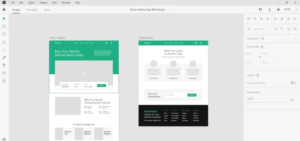
Private social networks for communities are transforming the way we connect and engage with one another in more meaningful ways. These platforms serve as exclusive spaces where members can share insights, collaborate, and foster relationships without the noise of public networks. With a focus on security and privacy, they offer a unique environment conducive to building trusted connections within communities.
Unlike traditional social media, private networks come equipped with features designed to enrich user experience, such as tailored content sharing, event organization, and targeted discussions, which are pivotal for nurturing community spirit. Their significance lies not only in enhancing interpersonal connections but also in empowering members to contribute actively and feel a part of something larger.
Overview of Private Social Networks for Communities

In an increasingly digital world, private social networks have emerged as essential platforms for fostering community engagement. These networks provide safe spaces where individuals can connect, share, and collaborate without the distractions and privacy concerns often associated with public platforms. Private social networks are designed specifically for groups or communities that seek a more controlled environment for interaction and collaboration.
Unlike public social media platforms, which often prioritize broad visibility and engagement metrics, private networks emphasize member privacy and tailored experiences. This fosters a sense of belonging and encourages deeper connections among members.
Key Features of Private Social Networks
Private social networks offer several distinct features that set them apart from traditional public platforms. Understanding these features is crucial for appreciating their role in community building.
- Membership Control: Only invited members can join, which creates a safe environment for sharing personal information and ideas.
- Privacy Settings: Users have enhanced privacy options, allowing them to manage who sees their content and interactions.
- Customizable Features: Many private networks allow for customization of tools and functionalities to better serve the specific needs of the community.
- Focused Discussions: Conversations are more targeted, enabling deeper engagement on specific topics relevant to the community.
- Content Moderation: Controlled environments reduce the risk of harassment or spam, helping to maintain a respectful and constructive community atmosphere.
Benefits of Using Private Social Networks for Community Building
Utilizing private social networks can yield numerous advantages for communities wishing to enhance their engagement and cohesion. These benefits can significantly impact how members interact and contribute to the community.
- Enhanced Member Engagement: Members feel more secure and valued, leading to increased participation and sharing of ideas.
- Stronger Relationships: With a focus on privacy and connection, members can build deeper relationships with one another.
- Facilitated Collaboration: Tools for collaboration, such as shared documents and project management features, make it easier for members to work together effectively.
- Targeted Communication: Communities can share relevant information tailored to the interests of specific groups within the network.
- Long-term Sustainability: A dedicated platform for interaction helps communities maintain continuity and foster long-lasting relationships among members.
“Private social networks create an intimate atmosphere that enables genuine connections, encouraging collaboration and community growth.”
The Role of Private Social Networks in Marketing
Private social networks have emerged as a powerful tool for marketers, offering unique advantages that traditional social media platforms may not provide. These networks allow brands to connect with niche audiences in an authentic and engaging manner, creating meaningful relationships and fostering community loyalty. This section will explore the strategies for leveraging private social networks in marketing efforts, enhancing site promotion, and analyzing their effectiveness in video marketing compared to traditional platforms.
Strategies for Utilizing Private Social Networks in Search Engine Marketing
Incorporating private social networks into search engine marketing (SEM) can significantly boost a brand’s visibility and search rankings. Here are some effective strategies:
- Targeted Advertising: Utilize the specific demographics of private networks to create tailored ads that resonate with the community’s members, thus improving engagement rates.
- Content Sharing: Share high-quality, relevant content within the network to encourage members to link back to the brand’s main site, enhancing through increased inbound links.
- Influencer Partnerships: Collaborate with influencers within the private network to amplify content and marketing efforts, leveraging their authority to attract more members to the brand’s offerings.
Enhancing Site Promotion and Increasing Visibility
Private social networks offer a unique avenue for site promotion that can lead to increased visibility. The following points highlight how these networks can be utilized effectively:
- Exclusive Content Access: Providing members with exclusive content or promotions encourages them to visit the brand’s website, driving traffic and improving search rankings.
- Community Engagement: Engaging with community members through discussions and feedback can enhance brand loyalty, leading to organic sharing of content and increased visibility outside the network.
- Brand Advocacy: Encouraging satisfied members to share their experiences can promote the brand authentically, leading to higher conversion rates and a broader reach in search results.
Comparative Analysis of Private Social Networks Versus Traditional Social Media Platforms in Video Marketing Approaches
Video marketing is pivotal in today’s digital landscape, and private social networks provide distinctive advantages compared to traditional platforms. The following points Artikel the differences in strategies and effectiveness:
- Authenticity and Trust: Content shared within private networks often feels more authentic and is more readily trusted by users compared to conventional social media, where content can be more commercialized.
- Targeted Reach: Private networks allow for more targeted video marketing campaigns aimed at specific audience segments, increasing the likelihood of engagement and conversion.
- Community-driven Content: Videos that encourage community interaction, such as live Q&A sessions or member spotlights, perform well in private networks, fostering a deeper connection with the audience.
Utilizing private social networks in marketing can lead to more authentic connections and improved engagement, making them an invaluable asset for brands looking to cultivate a loyal community.
Security and Privacy in Private Social Networks
In the digital age, privacy and security are of paramount importance, particularly within private social networks where sensitive community interactions occur. These platforms serve as a gathering point for users to share personal experiences, ideas, and information, making them prime targets for malicious activities. Ensuring robust security measures is not just a best practice but a fundamental necessity to protect user data and maintain trust within the community.The significance of internet security measures in private social networks cannot be overstated.
These networks often hold vast amounts of personal information, including contact details, location data, and shared content. Breaches in this information can lead to identity theft, harassment, and the unauthorized distribution of user content. Therefore, implementing comprehensive security protocols is essential to safeguard user data and uphold the integrity of the community.
Implementation of Spam Blockers
To maintain a safe environment, a framework for implementing spam blockers is critical within private social networks. Spam can disrupt user experience, lead to misinformation, and compromise user privacy. A well-structured spam blocker framework should include the following components:
1. User Reporting Mechanism
Enable users to report spam content easily. This can help in quickly identifying and removing harmful posts.
2. Automated Filtering System
Create algorithms that identify spammy content based on s, links, and user behavior patterns. This proactive approach can significantly reduce the volume of spam reaching users.
3. Blacklisting and Whitelisting
Develop a system that maintains a blacklist of known spammers and a whitelist of trusted users. This minimizes the chances of spam infiltrating the network.
4. Community Moderation
Involve community members in moderation efforts to catch spam that automated systems might miss. This fosters a sense of community ownership and responsibility.
“Effective spam blockers not only protect user data but also enhance the overall user experience, ensuring a vibrant and trustworthy community.”
Best Practices for Web Design and Development
Maximizing security in the web design and development of private social networks is essential to prevent vulnerabilities. Several best practices can be implemented to enhance security:
Secure Authentication Methods
Implement multi-factor authentication to add an extra layer of security. This can reduce the risk of unauthorized access.
Data Encryption
Use encryption for data in transit and at rest. This ensures that personal information remains confidential and secure from interception.
Regular Software Updates
Keep all software, including plugins and frameworks, up to date to protect against known vulnerabilities. This practice is crucial for maintaining system integrity.
User Education
Provide users with resources on cybersecurity awareness. Educated users can better protect their accounts and report suspicious activities effectively.
“Security should be an integral part of the design process, not an afterthought. Incorporating security measures from the outset can prevent significant issues down the line.”
By adhering to these practices, private social networks can foster a secure and inviting environment for their users, ensuring that privacy and security remain at the forefront of their operations.
Ending Remarks

In summary, private social networks for communities offer invaluable tools for engagement, marketing, and security, making them indispensable in today’s digital landscape. As communities continue to thrive in these enclosed environments, they pave the way for more personalized interactions and effective collaboration. Ultimately, the future of community-building will be defined by these innovative platforms that prioritize member privacy and connection over public exposure.
Common Queries
What are private social networks?
Private social networks are online platforms designed for specific groups, offering a secure environment for members to connect and share content without public visibility.
How do private networks differ from public social media?
Private networks prioritize user privacy, provide controlled access, and focus on community engagement, unlike public platforms which are open to anyone.
Can businesses benefit from private social networks?
Yes, businesses can utilize private networks to engage with customers directly, gather feedback, and promote products in a more intimate setting.
What security measures are essential for private social networks?
Important security measures include robust user authentication, data encryption, and spam protection to safeguard member information and interactions.
How can private networks enhance community building?
By providing tailored communication tools and fostering a sense of belonging, private networks help strengthen relationships and deepen community ties.





